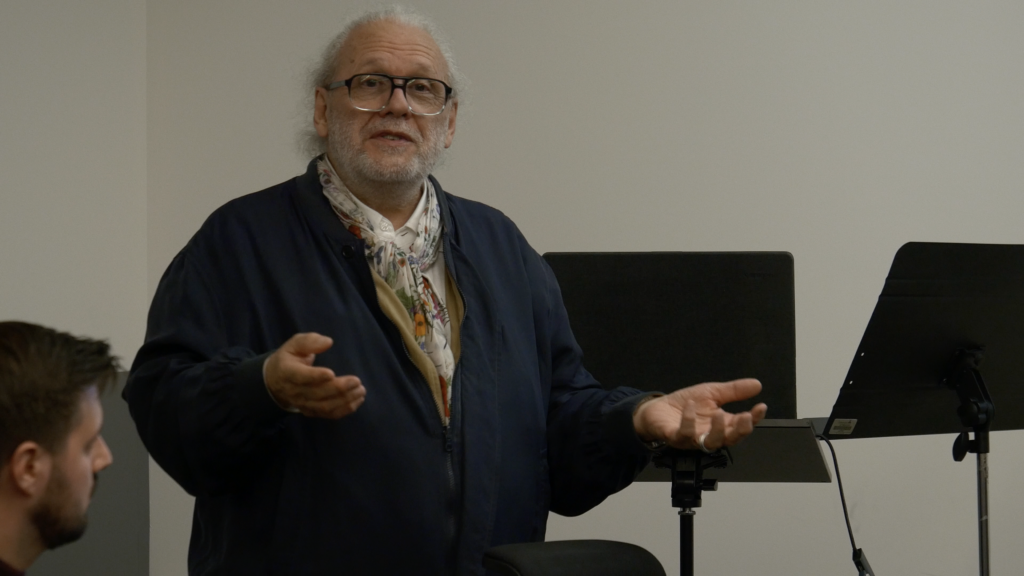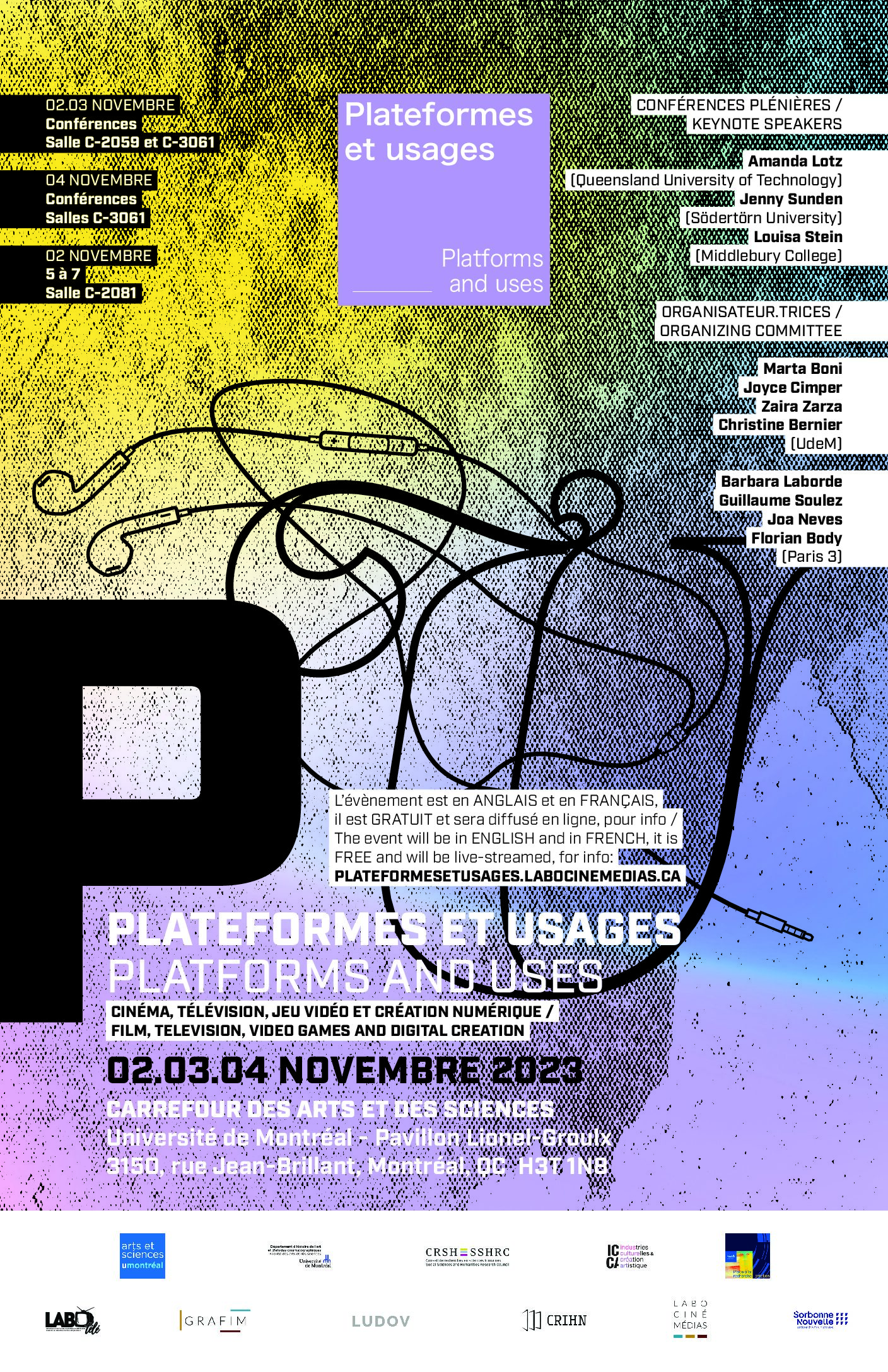The scholar André Gaudreault gave the opening lecture at the I/MA/C/S conference on teaching

William Pedneault-Pouliot
On 29 September, Laboratoire CinéMédias at the Université de Montréal inaugurated the international conference “Opening Dialogue: Variations on Image Education,” co-presented by the I/MA/C/S (International Master in Cinema Studies) network and the cinEXmedia partnership.
The opening lecture by scholar André Gaudreault was followed by a welcoming reception at which various professors representing the Université de Montréal and other specialists in cinema studies spoke about their recent work and a variety of present-day topics.
The History of Teaching Cinema at the Université de Montréal
André Gaudreault’s talk, entitled “Cinema’s Extraordinary Adventures at University (of Montreal … and of the World): The Birth, Recognition and Institutionalisation of Teaching Cinema Studies at University,” was presented simultaneously before an audience at the Université de Montréal and online. This lecture, among other things, laid out the circumstances which led to the gradual institutionalisation of cinema studies in institutions of higher education.
“My ambition today is to give transnational scope to an examination of a local phenomenon,” professor Gaudreault declared at the outset of his talk, which sought to understand the “institutional and societal paradigms” which were able to create an “environment conducive to the growth of cinema studies” at the Université de Montréal and elsewhere in Canada and around the world.
For the next forty-five minutes, André Gaudreault painted a broad picture of the “adventure” of cinema studies at the Université de Montréal. He singled out in particular the university’s pioneering role in the growth of cinema studies in Canada: it was the first university in the country to introduce a certificate (in 1966), a minor (in 1974), a major (in 1977), a master’s program (in 1994) and, finally, a Ph.D. program (in 2007), a step he described as crossing the threshold of cinema’s “institutionalisation” in universities.
André Gaudreault also tied the history of cinema studies at the Université de Montréal to a number of international developments in the field, underscoring the contributions of Lewis W. Randall, Erwin Panofsky, Jean Mitry and Gilles Marsolais, eminent scholars who all played a role in the institutionalisation of cinema studies in Montreal. His talk also addressed the contribution of Canon Arthur Sideleau in this respect. In Gaudreault’s eyes, Sideleau, who was dean of the faculty of the arts in the 1960s, fully embodied the ambiguity of the relations between the Catholic Church and cinema at the time, wavering between defiance and enthusiasm.
André Gaudreault concluded his talk by recalling the ties between the various disciplines within the Département d’histoire de l’art et d’études cinématographiques de l’Université de Montréal, which mirrors the overall process of decompartmentalising cinema studies around the world in today’s digital age.
CinéMédias and the I/MA/C/S Network in the Spotlight
The evening continued at the university’s Carrefour des arts et des sciences with a reception at which several prominent guests spoke. Valérie Amiraux, professor in the Département de sociologie and Vice-Rector for Community and International Partnerships, Julie Carrier, professor in the Département de psychologie and Deputy Vice-Rector for graduate and post-doctoral studies, and Marie Achille, professor in the Département de psychologie and Vice-Dean of the Faculté des arts et des sciences, spoke first about the many benefits associated with the development of international networks such as I/MA/C/S.
These remarks were followed by comments from Bernard Perron, professor and Chair of the Département d’histoire de l’art et d’études cinématographiques, who stressed the importance of the I/MA/C/S network for his department.
Robert Daudelin, a major figure in the history, preservation and dissemination of cinema in Quebec, made a plea for the necessary bonds between archives and university research, on the occasion of the publication of the book Tales from the Vaults: Film Technology over the Years and across Continents, co-edited by Louis Pelletier, course instructor in the department and member of the international research partnership TECHNÈS. Pelletier briefly introduced the book, which has a preface by the filmmaker Christopher Nolan.
Next up was Philippe Marion, emeritus professor at the Université catholique de Louvain, to introduce La fin du cinéma? La résilience d’un média à l’ère du numérique, the second revised and expanded edition of a book he co-authored in 2013 with André Gaudreault. Professor André Habib, for his part, introduced the book Le cinéma dans l’oeil du collectionneur, which he co-edited.
Finally, Rémy Besson, course instructor and scholarly coordinator for TECHNÈS, introduced the TECHNÈS digital Encyclopaedia, which will be published on the Érudit platform.

